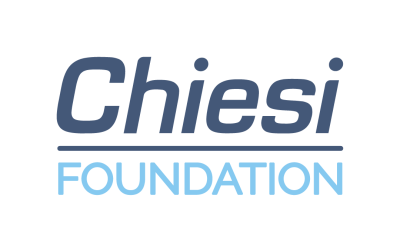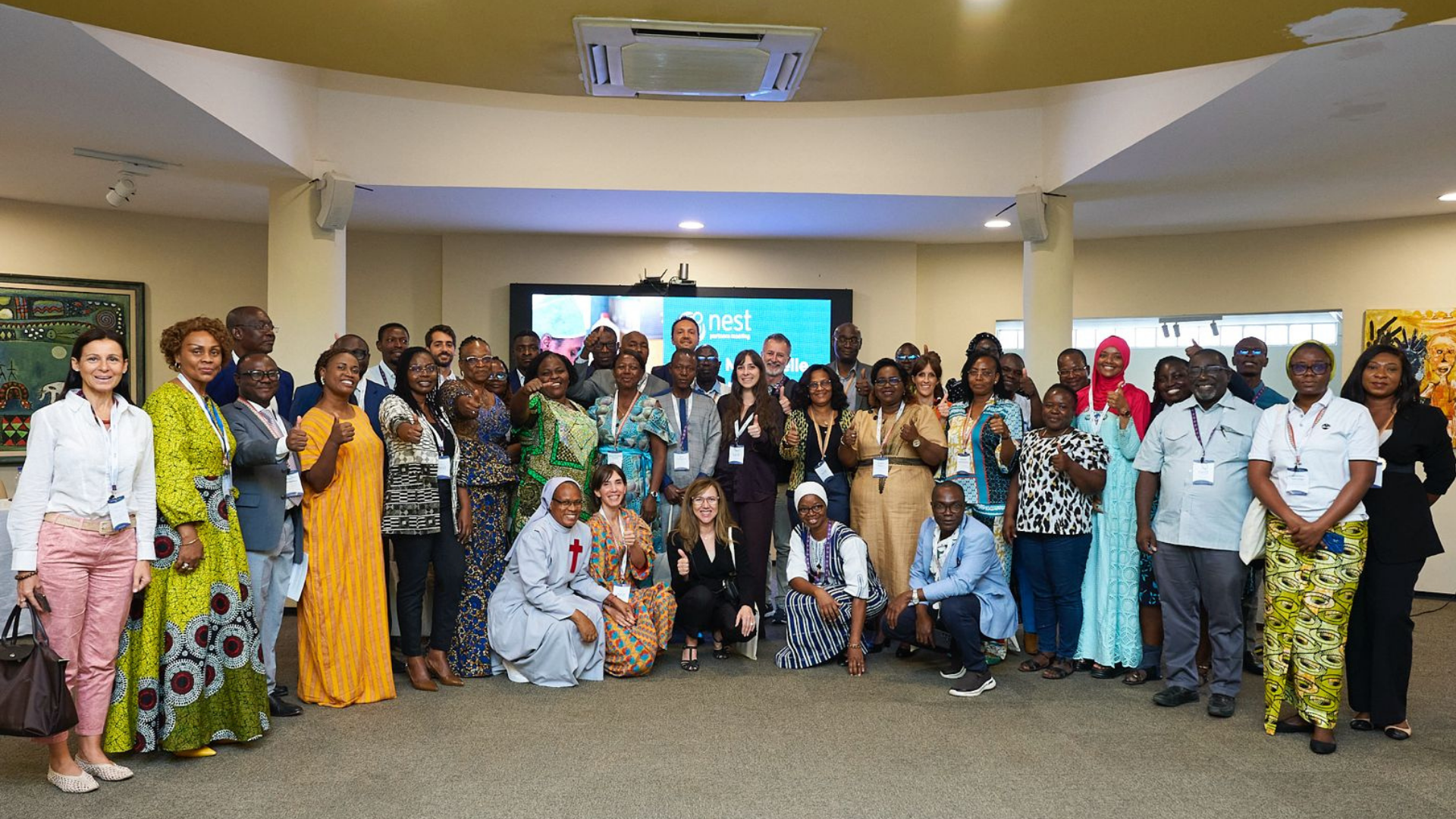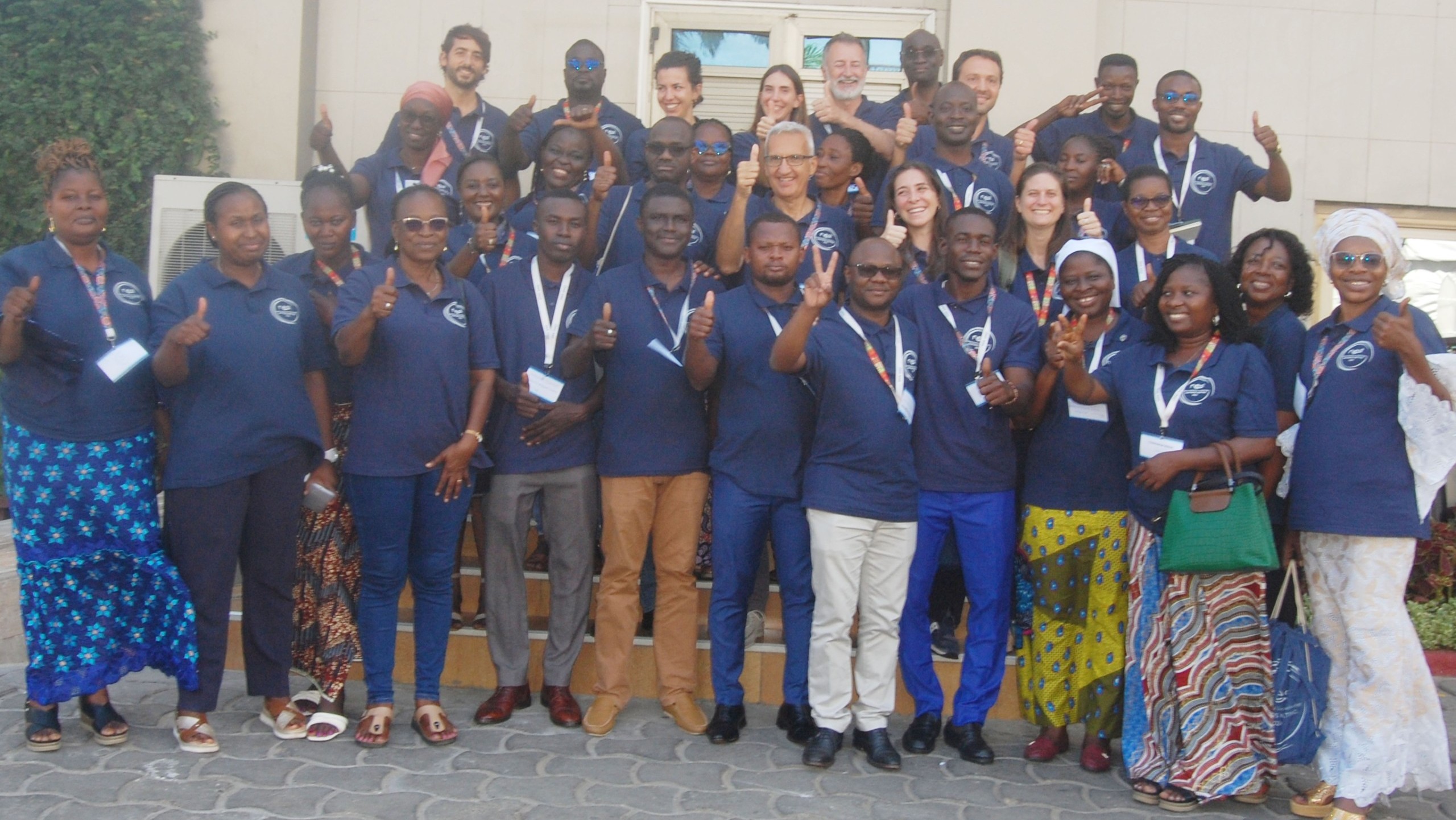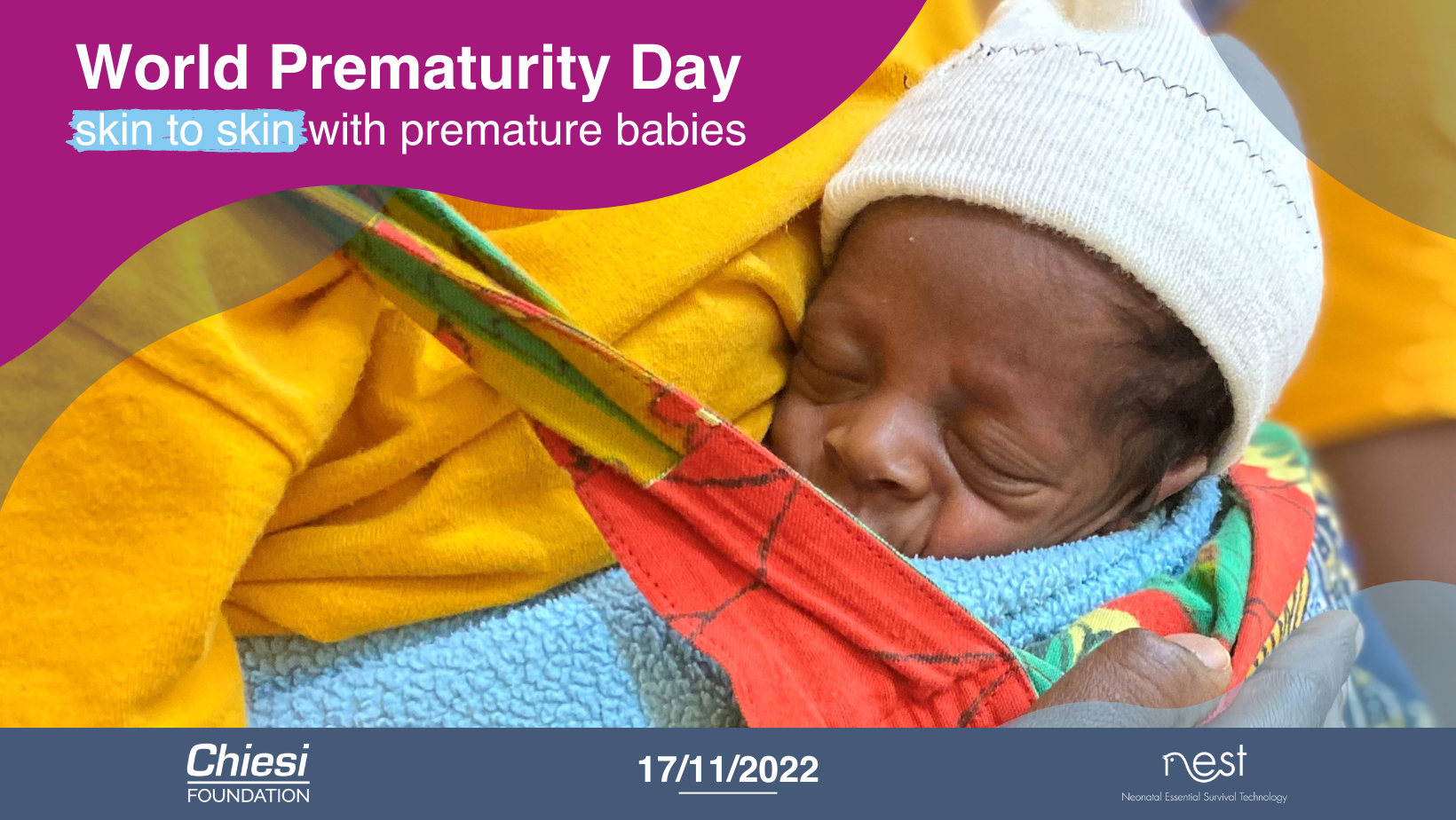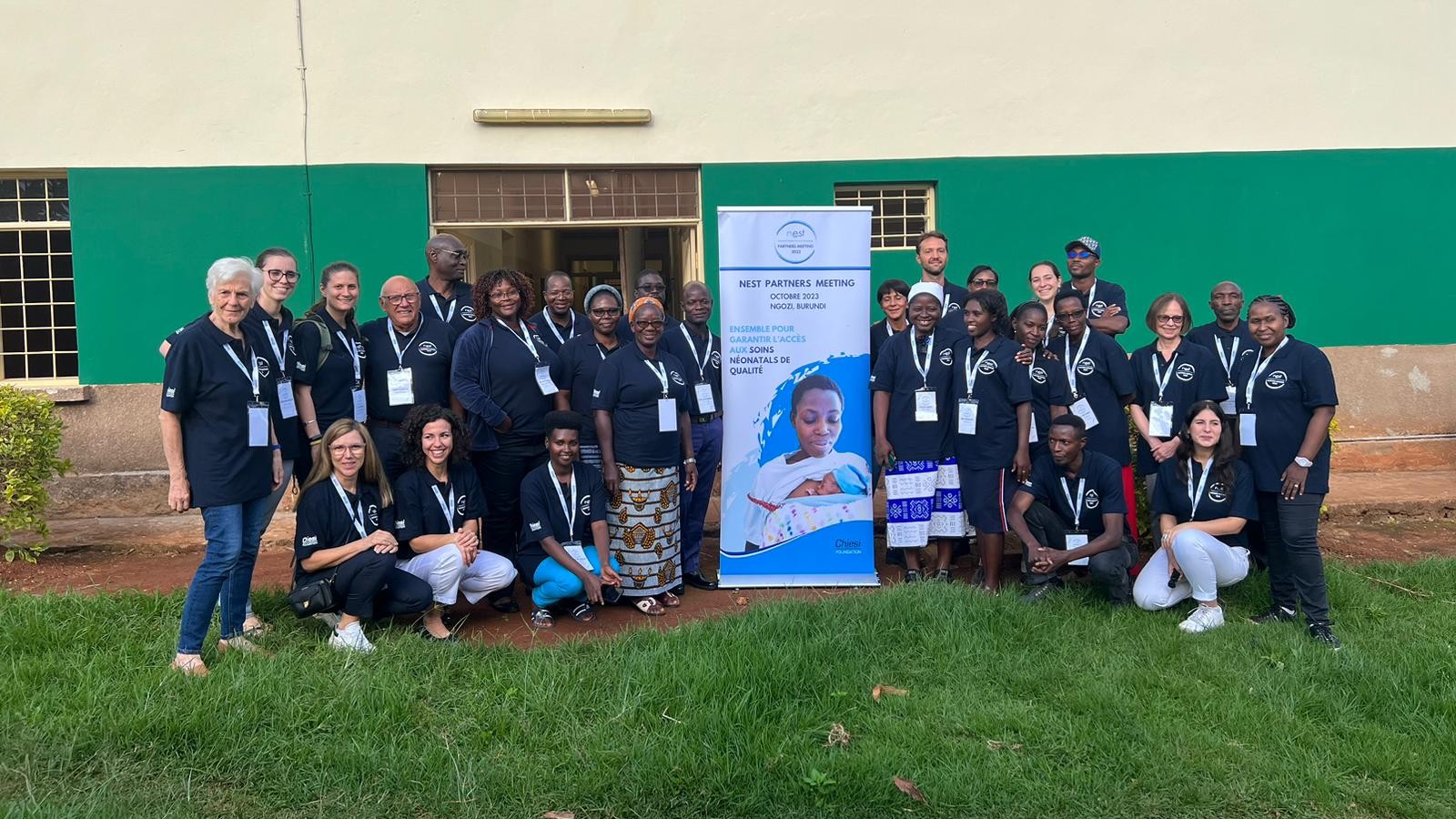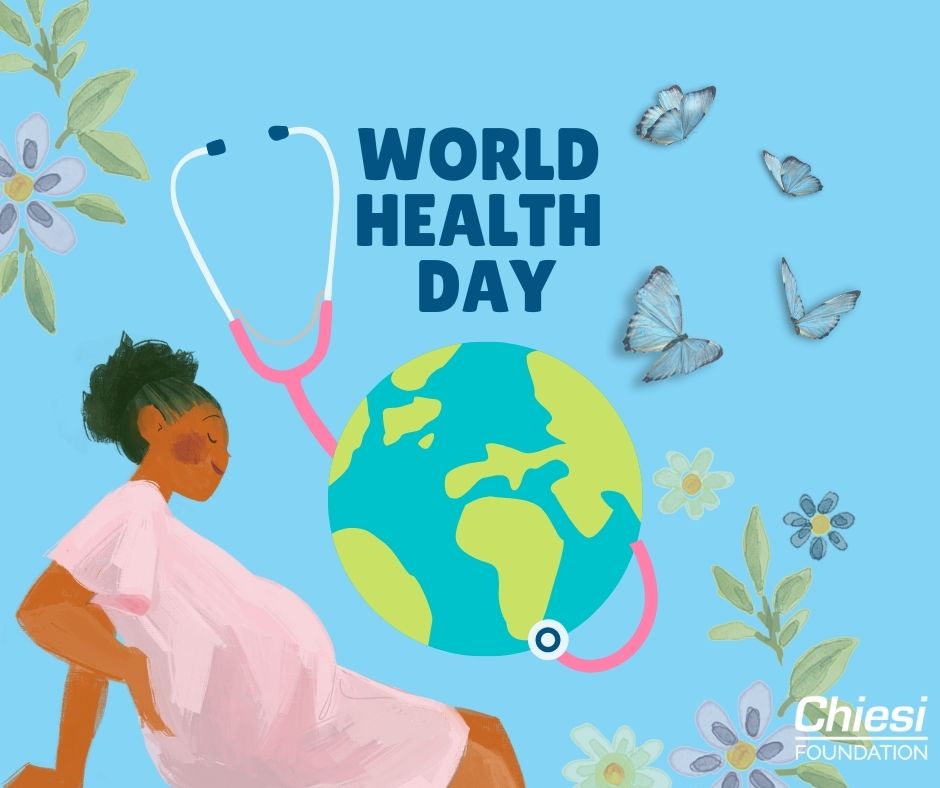by Lorenza Picco
Share
The 2025 edition of the NEST Partners Meeting, an event organized by the Chiesi Foundation to bring together healthcare professionals, global institutions and partner organizations committed to strengthening and implementing the NEST – Neonatal Essentials for Survival and Thriving model, took place in Abidjan, Ivory Coast, from 7 to 10 July 2025.
Among the participants at the meeting were: KOL, stakeholders and delegations coming from different areas of Francophone sub-Saharan Africa and, in particular, representatives of the African hospitals partnering with the NEST Model, including:Hôpital Saint Jean de Dieu de Tanguiéta and the CHU-MEL from Benin, theHôpital Saint Camille de Ouagadougou from Burkina Faso, theHôpital de Ngozi from Burundi, the CHR d’Abobo from Ivory Coast and theHôpital d’Enfants Yendube from Togo. Of particular note was also the presence of Prof. Solange Ouedraogo, consultant of the NEST model in Burkina Faso and member of the NEST Technical Advisory Group, and of Prof. Oura-Bagna Tchagbele, consultant of the NEST model in Togo.
Now in its third edition, after the 2023 meeting in Burundi and the 2024 meeting in Benin, the meeting represented a moment of reflection, learning and joint planning, aimed at strengthening the quality and accessibility of neonatal care in low-resource settings.. A purpose in line with the Sustainable Development Goals of the United Nations 2030 Agenda, in particular SDG 3.2, focused on reducing neonatal mortality, and SDG 17 aimed at building effective partnerships.
Practical training and development of clinical skills
One of the pillars of this edition was the strengthening of clinical skills of participants through practical workshops, simulations and case studies. A concrete example came from the testimony of Anna Cavestro, representative of Doctors with Africa – CUAMM in Ivory Coast, and Betti N’Gom, pediatrician at the Centre Hospitalier Régional d’Abobo, who illustrated the recent developments in the Ivorian context, including the activation of a new neonatology at the CHR of Abobo and of a training program created in collaboration with the Italian Society of Neonatology (SIN), and the Programme National de Santé de la Mère et de l’Enfant (PNSME), with the involvement of three Italian neonatologists.
From this first joint experience the Neonatal Resuscitation Workshop was born. Presented during the NEST Partners Meeting by expert neonatologists, including Dr. Paolo Villani, a member of the Italian Society of Neonatology, this smaller version of the training implemented at the CHR d’Abobo, offered participants an immersive and hands-on experience, with simulations of realistic clinical scenarios designed to strengthen the operational skills of healthcare workers in limited-resource settings.
Another key session, led by the Foundation’s Technical Advisors, Ousmane Ndiaye and Federico Bianco, guided participants in the analysis of complex clinical cases, highlighting the challenges that can arise in the field—from prenatal diagnosis to follow-up. In particular, the intervention of Federico Bianco, on the Patient Journey, which is the care pathway of a mother at risk of premature birth, offered a systemic perspective on the urgency of timely and integrated action, underlining how each step—from prevention to care—can make a difference in safeguarding the health of mothers and newborns.
Family-centered care
Another central theme that emerged from the meeting was the value of family-centered healthcare. The visit to the national referral centre for Kangaroo Care (KC) at the Centre Hospitalier Universitaire de Treichville allowed participants to witness first-hand the daily activities of the staff in this department and to fully understand the importance of KC, a sustainable, low-cost and high-impact method, focused on skin-to-skin contact and aimed at reducing the mortality of premature, sick or low-birth-weight newborns.
During the visit and the dedicated round table, the participants explored the potential of this practice in strengthening the bond between parents and newborns, improving clinical outcomes and promoting the active involvement of families in the care process of the mother and her newborn. The contribution of the Professor Ousmane Ndiaye, Technical Advisor of the Foundation, further emphasized the key role of empathy, dialogue, and therapeutic relationships with families in neonatal care.
Strategic vision and interinstitutional coordination
The NEST Partners Meeting also offered an important space for strategic discussion between institutional and international stakeholders. Wednesday was dedicated to the institutional meeting “Santé Maternelle et Néonatale: Une Vision Commune pour l’Avenir”, which involved representatives of the Ministry of Health of Ivory Coast and organizations such as WHO, UNICEF, Doctors with Africa – CUAMM, Gates Foundation and Jhpiego.
The debate, moderated by Dr. Franck Houndjahoue, President of the Research Commission of the African Neonatal Association and member of the Technical Advisory Group of the Chiesi Foundation, highlighted the need for coordinated, multisectoral action to reduce maternal and neonatal mortality, while strengthening health systems and promoting equity in access to care.
Monitoring, planning and impact
From theory to action: how can we transform clinical knowledge and skills into meaningful and measurable impact? This question guided the meeting’s final session, dedicated to planning and monitoring tools. The workshop, led by the Chiesi Foundation team, provided participants with practical tools to set long-term goals and evaluate their progress through the integrated approach proposed within the NEST model.
A step forward towards neonatal health
The NEST Partners Meeting 2025 concluded with a renewed sense of connection, commitment and shared vision. The days in Abidjan confirmed the power of international collaboration to build stronger, more resilient, and more equitable health systems.
Through sharing best practices, strengthening local capacity, and institutional coordination, the NEST model continues to expand, aiming to ensure that every newborn, everywhere, can have a healthier future.
The Chiesi Foundation thanks all its partners for their dedication and contribution to accelerating change and ensuring a healthier future for all.
If you want to learn more about the NEST Partners Meeting 2025, visit our YouTube channel and view exclusive interviews with participants to gain deeper insights into the event.
